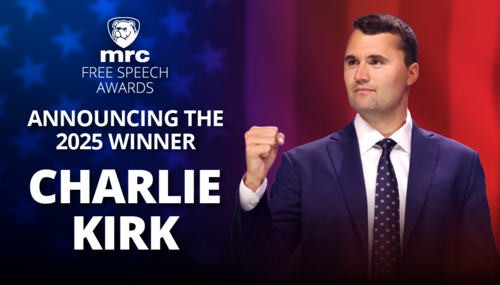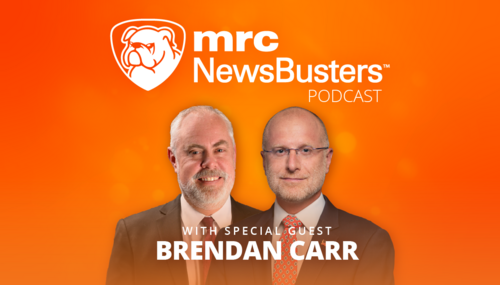As news broke on Tuesday of Burger King buying Tim Hortons and moving its corporate headquarters to Canada, the broadcast networks quickly adopted the liberal talking point that the fast food chain was being unpatriotic by avoiding high U.S. tax rates. On Tuesday's ABC World News, anchor Diane Sawyer proclaimed: "Burger King, home of the Whopper, accused of doing something a lot of Americans question, defecting. Heading north of the border to Canada and saving a lot of tax money." [Listen to the audio or watch the video after the jump]
On Wednesday's Today, correspondent John Yang touted "a whopper of a controversy" over the move and announced: "...just the idea of moving the headquarters to Canada has some once-loyal Burger King subjects ready to revolt....On Burger King's Facebook page, nearly 5,000 posts, most critical. 'You abandon the America that made you and we will abandon you.'"
Reporting for Tuesday's CBS Evening News, correspondent Vanita Nair warned that the "Have it your way" burger joint "can now pay taxes their way, by keeping profits north of the border." The hosts of Wednesday's CBS This Morning hit billionaire Warren Buffett from the left over helping finance the deal and being "a capitalist before he's a patriot."
A half sentence during Nair's Evening News report on how "The Obama administration would like to lower the corporate rate" was the only mention in all of the network coverage that cutting taxes could resolve the issue.
Here are transcripts of the August 26-27 network coverage:
08/26 World News
6:30 PM ET TEASE:
DIANE SAWYER: Burger King backlash. Is the American giant moving to Canada to save money on taxes?
6:38 PM ET SEGMENT:
SAWYER: And tonight an American original is under fire. Burger King, home of the Whopper, accused of doing something a lot of Americans question, defecting. Heading north of the border to Canada and saving a lot of tax money. So what's the truth of what they're doing? ABC's chief business correspondent Rebecca Jarvis tracked down the CEO with the questions tonight.
REBECCA JARVIS: Burger King, the company founded in 1957 in Miami, will now combine with Canadian donut giant Tim Hortons, becoming the world's third largest fast food company with more than 18,000 restaurants worldwide.
[ON-SCREEN HEADLINE: Burger King's Big Move; Fast Food Giant Turns Canadian?]
JARVIS [TO MYLES UDLAND]: Why is Burger King doing this?
MYLES UDLAND [BUSINESS INSIDER]: Well, sales haven't been great. Sales have been about flat over the last couple years and Tim Hortons is the biggest coffee player in Canada.
JARVIS: But they'll also pay lower taxes, a point we pressed today with the CEO. [To Dan Schwartz] How much over the next ten years Burger King expects to save on its taxes?
DAN SCHWARTZ [BURGER KING CEO]: Tax really wasn't the driver for this deal.
JARVIS: Burger King makes about $1 billion a year in sales. Analysts say by moving to Canada it could save as much as $50 million on taxes. The U.S. has the highest corporate tax rate in the world, 39%. Canada's? Just 26%. Burger King, like many companies, pays below the U.S. rate, but in moving to Canada, it gets an even better deal.
UDLAND: The term tax inversion has come up a lot. Basically a company in the U.S. shifting their tax base overseas.
JARVIS: Americans outraged online. The President earlier this summer criticized companies for relocating.
BARACK OBAMA: My attitude is I don't care if it's legal, it's wrong.
JARVIS: Fearing backlash, drug store chain Walgreens recently walked away from a similar deal to move overseas.
But helping finance this deal, billionaire investor and friend of the White House, Warren Buffett, who famously complained that billionaires shouldn't pay lower taxes than average Americans.
But this is not just about Burger King. We've seen a sizable increase in U.S. companies relocating to foreign addresses to save on their taxes, and it comes at a price. It could cost the U.S. as much as $19 billion, Diane, over ten years if this continues to happen.
SAWYER: And it's firing up the social media tonight. Thanks so much, Rebecca.
08/26 CBS Evening News
6:42 PM ET
MAURICE DUBOIS: Burger King is going ahead with its purchase of Tim Hortons. BK said today it will pay $11 billion for the Canadian doughnut and coffee chain. It will get Tim Hortons more than 4,000 locations and some tax advantages as well. Here's Vanita Nair.
VANITA NAIR: For more than sixty years Burger King has encouraged Americans to "have it your way." Today's acquisition of Canadian doughnut chain Tim Hortons means they can now pay taxes their way, by keeping profits north of the border.
But today on Facebook, Burger King denied the purchase had anything to do with taxes, saying, "We're not moving, we're just growing and finding ways to serve you better." But customers like Clayton James aren't buying it. "Moving to Canada to dodge taxes? Ate my last Whopper."
John Engler is the president of the Business Roundtable, a group made up of CEOs.
JOHN ENGLER [BUSINESS ROUNDTABLE]: It's a rational decision. It's sort of like somebody moving out of New York and moving to Florida so they don't have to pay a state income tax.
NAIR: He thinks companies will keep overseas profits in foreign banks to avoid a U.S. tax rate as high as 35%. The Obama administration would like to lower the corporate rate and close the loophole that allows companies to keep money offshore.
BARACK OBAMA: It's not fair. It's not right. The lost revenue to treasury means it's got to be made up somewhere and that typically is going to be a bunch of hardworking Americans.
NAIR: Apple has $111 billion in overseas profits in foreign accounts. G.E., $110 billion. Microsoft, $76 billion. And Pfizer is at $69 billion. By one estimate, Apple would owe Uncle Sam more than $36 billion.
Today's Burger King deal was financed with $3 billion from Warren Buffett's Berkshire Hathaway, but Maurice, a lot of people are pointing out that Buffet has long held a position that corporations should not get any tax breaks.
DUBOIS: Vanita Nair, thank you.
08/27 Today
7:17 AM ET
TAMRON HALL: Well, a beef has quickly developed over Burger King's decision to buy Canada's most popular coffee and doughnut chain, Tim Hortons. The eleven billion dollar deal includes plans to move Burger King's headquarters north of the border and that has some customers, even a U.S. senator, threatening to boycott. NBC's John Yang is in Chicago with the latest. John, good morning.
[ON-SCREEN HEADLINE: Burger King Backlash; Consumer Outrage Over Chain's Move to Canada]
JOHN YANG: Good morning, Tamron. They may not be adding Canadian bacon to the Whopper, but just the idea of moving the headquarters to Canada has some once-loyal Burger King subjects ready to revolt.
A whopper of a deal. Burger King's eleven billion dollar Warren Buffett backed purchase of Tim Hortons of Canada. And a whopper of a controversy, because the combined company will be headquartered in Canada. On Burger King's Facebook page, nearly 5,000 posts, most critical. "You abandon the America that made you and we will abandon you." "Move all your stores to Canada and let them support you."
Burger King tried to cool the flame-grilled controversy, saying the move "is not tax driven." The company "will continue to pay all our federal, state and local U.S. taxes." "The WHOPPER isn't going anywhere." But the parent company's corporate taxes will be paid in Canada, where rates are lower than in the U.S.
MARC CAIRA [CEO, TIM HORTONS]: Burger King pays for taxes in the U.S. Tim Hortons pays their taxes in Canada. This new holding company we're going to create will obviously pay their taxes in Canada. This is not a tax story.
YANG: Some posts cheered the move. "Going to eat at BK more now for sticking it to the U.S. government." "Good business decision...go to BK today and have it your way." One even joked, "Can y'all take Justin Bieber with you?"
Burger King has never toppled McDonald's from the fast food throne. Lately, competition is heating up with Taco Bell and KFC. Especially fierce, the fast-growing breakfast market. In Canada, eight out of every ten cups of coffee sold are from Tim Hortons. And that could give Burger King a big breakfast boost.
SHAWN PREZ [MARKETING EXPERT]: This could essentially move them up about, I don't know, ten extra percent, getting them closer to McDonald's.
YANG: If Canadian regulators approve the deal, this will create the third biggest fast food chain in the world, behind McDonald's and KFC. Tamron.
HALL: Alright, John. Thank you very much.





